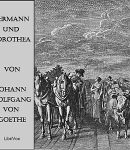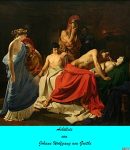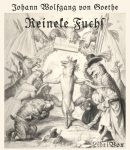There are few modern poems of any country so perfect in their kind as the “Hermann and Dorothea” of Goethe. In clearness of characterization, in unity of tone, in the adjustment of background and foreground, in the conduct of the narrative, it conforms admirably to the strict canons of art; yet it preserves a freshness and spontaneity in its emotional appeal that are rare in works of so classical a perfection in form. The basis of the poem is a historical incident. In the year 1731 the Archbishop of Salzburg drove out of his diocese a thousand Protestants, who took refuge in South Germany, and among whom was a girl who became the bride of the son of a rich burgher. The occasion of the girl’s exile was changed by Goethe to more recent times, and in the poem she is represented as a German from the west bank of the Rhine fleeing from the turmoil caused by the French Revolution. The political element is not a mere background, but is woven into the plot with consummate skill, being used, at one point, for example, in the characterization of Dorothea, who before the time of her appearance in the poem has been deprived of her first betrothed by the guillotine; and, at another, in furnishing a telling contrast between the revolutionary uproar in France and the settled peace of the German village. The characters of the father and the minister Goethe took over from the original incident, the mother he […]



